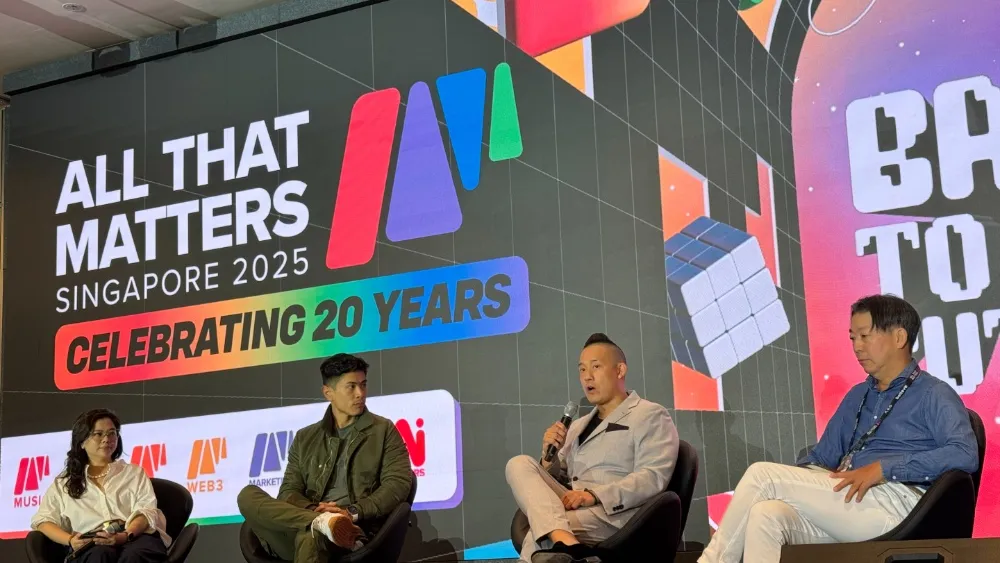
At Singapore’s All That Matters conference, senior executives from Sony Music Entertainment Japan, Amazon Music, Netflix and Gold House dissected Asia’s expanding role as a global content powerhouse, citing anime, K-pop and AI-driven production as forces reshaping the industry.
Moderated by Angel Lee, who handles music business and legal affairs for Netflix across Southeast Asia, Australia/New Zealand and Taiwan, the “East Meets Everywhere” session explored how Asian IP is scaling across music, anime, gaming and film.
Bing Chen, executive chair and CEO of Gold House, stressed the paradigm shift underway. “Historically, global has meant going to the West. The largest trend we’re all complicit in is ensuring that Asia doesn’t need the West — Asia has Asia,” he said. Chen highlighted K-pop’s cross-pollination with Indian music and argued that franchises must evolve beyond star-driven sequels. “’Pokémon’ is the best example,” he noted, citing its world-building structure that allows endless new characters and stories without reliance on superstar actors.
Sony Music Entertainment Japan’s Nobu Nakatake emphasized the persistence required to incubate global fandom. He pointed to “Demon Slayer: Kimetsu no Yaiba Infinity Castle,” which has grossed more than $600 million worldwide and drawn 67 million admissions. “Building the fan base on a global basis is tenacious work,” he said, underscoring that the franchise’s journey began nearly a decade ago with a manga series before exploding into a cultural phenomenon.
Amazon Music’s Frankie Yaptinchay spotlighted the platform’s cross-vertical reach, recalling the milestone of booking K-pop group Twice for “Amazon Music Live” in a prime slot following Thursday Night Football. “We saw record viewership,” he said, crediting the combination of Twitch, Prime Video and live fan experiences. Yaptinchay argued that collaborations resonate most when authentic: “It encapsulated all the different pieces that made Amazon special.”
Panelists also pushed for direct artist-to-artist connections. “Artists should speak with the same language with an artist or a creator,” Nakatake said, warning against label-engineered collaborations. Chen added that cultivating smaller circles of devoted fans often drives outsized impact, urging creators to ritualize fan experiences and offer status-based privileges.
As for takeaways, Chen urged artists to harness AI despite creative concerns: “There is, unfortunately, a very high direct correlation between the volume of content created and the size of audience.” Yaptinchay pressed for greater Asian representation at global institutions such as the Grammys, citing the work of the Gold Music Alliance. Nakatake’s closing note was clear: “Be distinct with respecting your cultural identity, not copying the Western top hit chart songs.”



